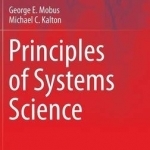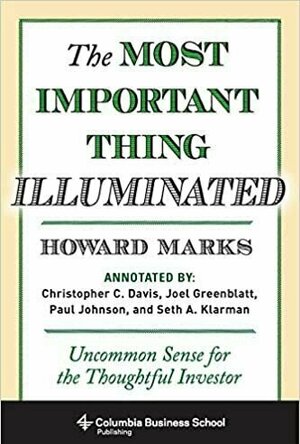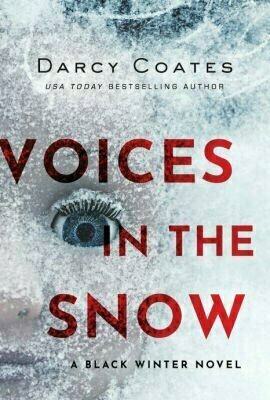
New York Marco Polo Handbook
Book
For advice you can trust, look no further than Marco Polo. The New York Marco Polo Handbook offers...

Empirical Modeling and Data Analysis for Engineers and Applied Scientists: 2016
Book
This textbook teaches advanced undergraduate and first-year graduate students in Engineering and...

If the Corncrake Calls
Ian Niall, Sheila Pehrson and Barbara Greg (Illustrator)
Book
When the Scottish writer John McNeillie died on the 24th June 2002 aged 85, he left behind a legacy...

Principles of Systems Science
George E. Mobus and Michael C. Kalton
Book
This pioneering text provides a comprehensive introduction to systems structure, function, and...
Jesters_folly (230 KP) rated Jigsaw (2017) in Movies
May 1, 2021
Jigsaw runs to almost the same formula as the previous films , there is a game in progress and the police have to stop it but as well as the game there is still enough of a story to make the film interesting. The biggest difference is that there isn't really the back story in the same way the other films had mainly because, with the exception of John Kramer (the original Jigsaw), we have all new characters. Instead Jigsaw focuses on finding out who the new Jigsaw is or even if it is a new Jigsaw or if John has some how come back from the dead. This is where the film is cleaver, it gives us a number of possible suspects and even makes it seem it may be John.
Jigsaw doesn't seem to be as gory as the previous films, yes you still have people in a game and yes at least some of them loose but there are no intestines littering the ground or close ups on people getting cut in half. Don't get me wrong there is still gore, closeups of the dead bodies and people loosing limbs but it doesn't quite have the same feel to it.
The story aspect to the film is good , as I said, it does leave you guessing to who the killer is although, if you pay attention there are clues. The film also plays with time a bit and, as in the other films, this is used to throw the viewer off track.
Jigsaw is a good entry in to the Saw franchise, as it has a ten year gap from Saw 7 it doesn't get bogged down with the original charters and doesn't get (too) bogged down with the past timeline which was getting a bit muddled (in my opinion) but it does manage to pull from what has gone before and use it further the story.
And that's it, the end of the Saw franchise. OK not quite, at the time of writing 'Spiral, Chapters from the book of Saw' is due out at the cinema (Corona willing) in a couple of weeks and it looks to bigger and better however I probably won't get to see it for a while so, for now, it's time to move onto something new.
Emeli Sande recommended track Angel of Mine by Eternal in Greatest Hits by Eternal in Music (curated)
Ivana A. | Diary of Difference (1171 KP) rated Sisters in Books
Oct 5, 2020
Synopsis:
Is blood really thicker than water?
Abby and Ellie were never close as children. Now in their thirties, they each harbour deep-rooted resentment for the other - Abby for her sister's looks and her status as their mother's favourite. Ellie meanwhile is envious of Abby's perfect husband and picturesque home, a villa on the sun-soaked Italian island of Elba.
When Abby invites Ellie to stay, both sisters see the break as a chance to relax and put aside their differences. But with their mother Susanna there too, all the simmering tensions of the past quickly rise to the surface. And Ellie suspects that Abby and their mother are keeping a dangerous secret . . .
But after a shocking act, the sisters have only each other to rely on. Vulnerable and scared, trusting each other will be the biggest risk of all . . .
My Thoughts:
Sisters by Michelle Frances was a very enjoyable and exciting ride for me. Not having read her previous books, I started reading without any expectations, hoping to enjoy the story for what it was. Two sisters - trying to improve their relationship, hopefully without their mother interfering.
What I got instead, was so much more! The suspense keeps building up from the very first chapter. The tension between the sisters is really awkward. The relationships between the mother and both daughters is very different and very concerning.
And then everything changes.
We have a surprising plot twists, and from that moment on, we are on a wild adventure. Old secrets will start coming up, things people thought were forgotten in the past. I did not know, and couldn't guess who the real villain is until the very end, and that was quite enjoyable for me! Everyone will tell you stories, everyone will say their own point of view. To you, everyone will seem like a villain and a victim at the same time, and this uncertainty will make you keep turning pages until you find out. Until the end.
I am glad I read Sisters by Michelle Frances. Another amazing suspense now added to my list. I highly recommend it to mystery, thriller and suspense fans, especially the ones that enjoy family drama.

The Most Important Thing Illuminated
Book
Howard Marks's The Most Important Thing distilled the investing insight of his celebrated client...

Vokabeltrainer phase6 classic
Education and Reference
App
phase6 classic is Germany's leading vocabulary trainer. phase6 is the only app to offer vocabulary...
Hadley (567 KP) rated Voices in the Snow in Books
Feb 16, 2021
Voices in the Snow is set in today's world, but at the beginning of a dystopian future in the UK, which mostly takes place at a large, desolate manor that sits just outside a forest called Banksy Forest. From the second chapter until the end, readers make their home here with the two main characters Clare and Dorran, but very shortly into the story, we realize that they aren't the only 'people' in the house.
The main question of the novel is whether or not Dorran can be trusted - - - Clare wakes up in his family's manor after a car accident, and she can't exactly remember how the accident happened, but she also can't remember why she was driving out in a blizzard in the first place, but she does recall that she was on the phone with her sister, Beth, and we learn that her sister worries about Clare like she's her mother. Clare becomes focused on trying to somehow contact Beth to let her know she's still alive.
We find out later that Dorran comes from a prestigious family that makes their money from being in the wood distribution business. His family, the Morthornes, aren't a typical family. Not only does Dorran's relatives live at the manor during the warmer months, but so do the servants, all 60 of them. Dorran makes it obvious that he doesn't enjoy this type of lifestyle:
" ' All right. I guess not. Especially in this house. How large is it [the house] ?'
'Inconveniently large.' He shrugged. 'It does not only house our family, but the servants as well.'
Clare's eyebrows rose. 'Servants?'
'Staff,' he corrected quickly. Clare thought she saw a flicker of embarrassment, but it was hidden almost immediately. 'My apologies. That is another part of tradition that is well outdated. My mother wishes for the staff to be referred to as servants.' "
Soon the two are discussing whether or not they could survive for months at the manor due to the blizzard not seeming to let up, with this discussion, readers find out there is an inside garden located in the depths of the manor, unfortunately, food wasn't planted since the family and servants leave the home for the winter, but there are plenty of seeds to start cultivating. One day while Clare is trying to get the seeds planted, she decides to go get Dorran, who left to go check on the many furnaces that heat the manor, but Clare easily gets lost in the house she has barely walked around in, and ends up in a wine cellar: here, Clare hears scraping noises that lead her to a creature huddled in the dark.
" The figure turned toward her. Eyes glinted - - - horrible, inhuman eyes peering out from behind long, greasy hair. Then the figure darted away, escaping from her circle of light, disappearing into a narrow doorway in the stone wall.
A sharp, broken scream cut through the cold air. Clare didn't realize it had come from her until she felt the ache in her throat. She stumbled backward, and her shoulders hit one of the shelves. Muffled clinking noises surrounded her as the bottles rocked.
She couldn't stop shaking. The thudding footsteps echoed around her, beating fast, like her own heart. The scraping noise joined it, louder this time. It surrounded her and overwhelmed her. "
Although Clare tells Dorran what she saw, he doesn't believe her. He believes that the stress from the car accident has caused her to hallucinate. Clare slowly begins to tell herself that he's probably right, but then the human-like creatures begin to show up more and more, always disappearing right before Dorran can see them. Shortly after an incident with another one of the creatures, Clare runs into Banksy Forest, set on getting the radio she remembered having in her car, to contact her sister Beth.
There are so many twists and turns in this story that it makes it wonderfully unpredictable. If I said anymore about it, it would give away too many of the surprises waiting inside. Voices in the Snow may not have been the best title for this book, but it is a really well-written horror story. The only annoyance I had with the novel is the awkwardness between the two main characters, which didn't seem natural. Most of what happens between Clare and Dorran are seen a mile away before it happens. During some scenes, I found myself rolling my eyes at the dialogue between Clare and Dorran, but the horror in the story makes up for the predictability of the characters.
I highly recommend this book to horror lovers; the scenes of scares and creatures were well-detailed. I was not disappointed at all. There were only a few inconsistencies throughout, but I think they would be easily over looked for the story is really enjoyable. I look forward to reading the rest of the series.



